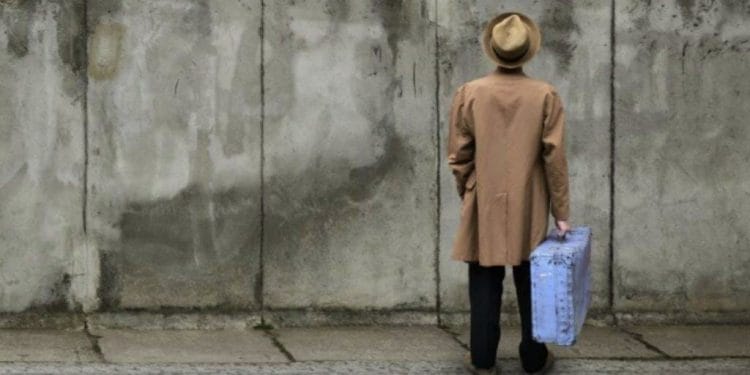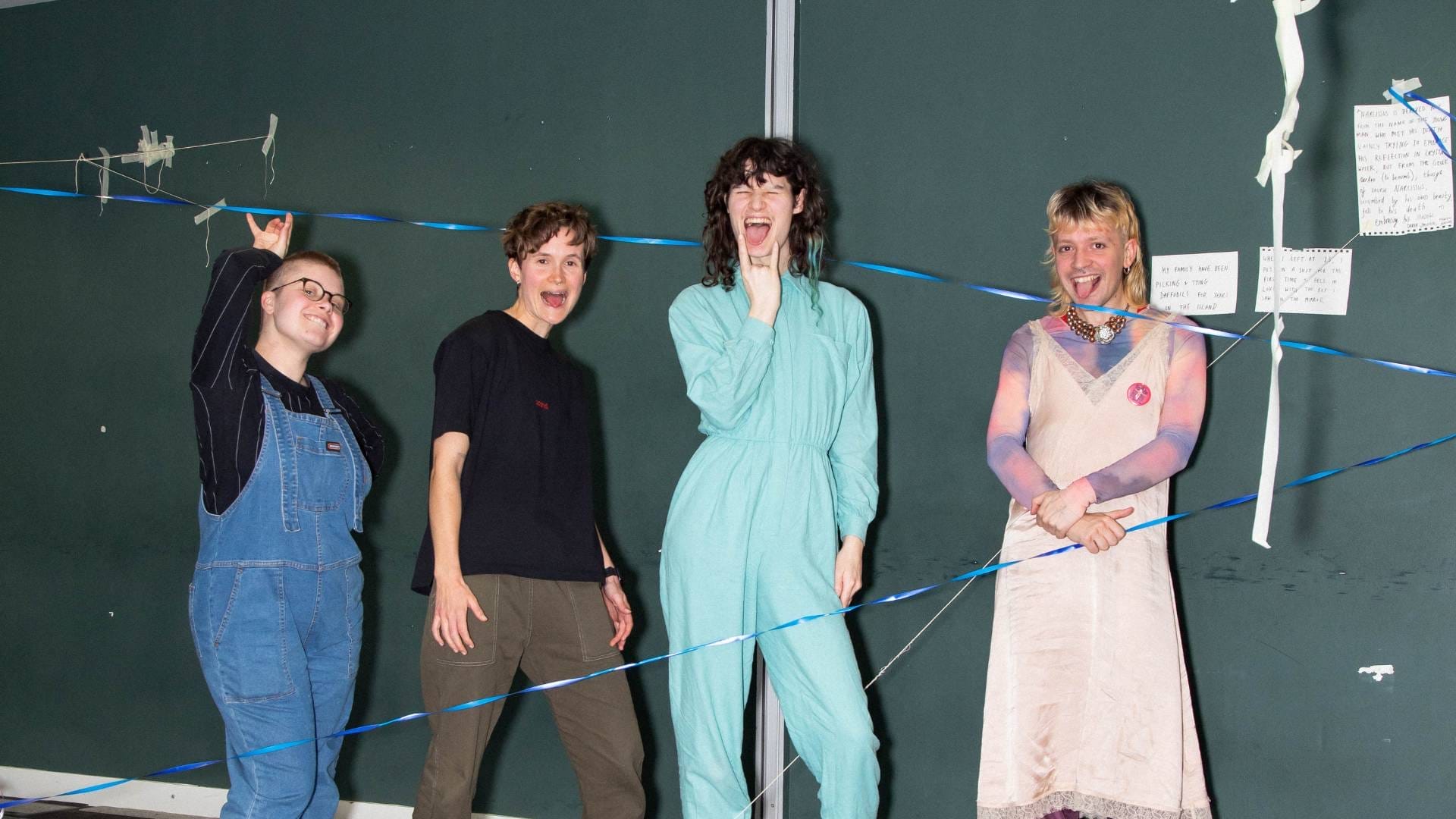 Back to Berlin makes for an entertaining hour, exploring nationhood, community and the power of collective memory to hold divided things together. Written by Luke Seidel-Haas, the play is the debut performance of CB4 Theatre, a new Cardiff based company whose work is ‘inspired by real people, real events, and always with the vision of challenging the status quo’. Whilst the performance is a bit rough around the edges and lacks a sense of real climax, the concept is a good one and the actors have worked hard to bring some fascinating anecdotes to life in Marylebone’s Cockpit theatre.
Back to Berlin makes for an entertaining hour, exploring nationhood, community and the power of collective memory to hold divided things together. Written by Luke Seidel-Haas, the play is the debut performance of CB4 Theatre, a new Cardiff based company whose work is ‘inspired by real people, real events, and always with the vision of challenging the status quo’. Whilst the performance is a bit rough around the edges and lacks a sense of real climax, the concept is a good one and the actors have worked hard to bring some fascinating anecdotes to life in Marylebone’s Cockpit theatre.
Based on the true story of Bernhard Haas (father to the play’s writer and main actor), Back to Berlin follows his journey from the UK to Germany, shining a spotlight on some of the individuals he meets on the route in unlikely combinations. Heated conversations between a student and an older man in a train give way to scenes of celebration and conflict at the Berlin Wall itself, prompting questions about the extent to which outsiders should make moral and political judgements, and what it means to belong to a nation at all.
Luke Seidel-Haas – who plays a younger Bernhard – propels the play forwards with the vast majority of the lines. He gets his audience onside with good energy and moments of poignant pause. Meg Evans puts in a commanding performance as an East German woman, who angrily refutes Bernhard’s accusations that she has failed to stand up for her freedom. As an ensemble, there are some great collaborative moments too: in particular, the knocking down of the wall, with a tower of cardboard boxes smashed down from behind, works really well.
The cast makes the most of the thrust staging, with some well-devised train scenes where the characters rotate seats. The breaking of the fourth wall for a party (where free beers are handed out) goes down well with the audience, although some of the breaks to explain the basic history and geography of Germany would be better woven into the script itself. Similarly, a final break of the fourth wall towards the play’s finish falls a little flat, as the characters link Germany’s fractured history with the UK’s current political situation in a rather proselytising manner. This felt a shame, as some more nuanced ideas about unity across difference and shifting cultural identities could have landed with real gravitas if they had been raised more subtly.
Back to Berlin offers an inventive window into recent history, even if a few elements need to be refined as the company finds its stride. Without a doubt, one of the production’s highlights is the featured audio clips from Luke’s interviews with his grandfather, alongside the contemporary broadcasts, which add a real weightiness to the retelling. If this kind of storytelling makes it into future productions, It will be exciting to see what CB4 Theatre come up with next as they develop further.

















